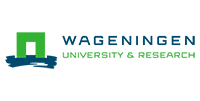What you will learn
- Understand the challenges of switching from a fossil source-based economy to a biobased economy.
- Understand how to identify suitable raw materials and create valuable new products.
- Learn how to refine biomass without damaging its valuable components.
- Perform a functional analysis of potential methods that can be used for refining a resource.
- Learn how to efficiently convert biobased feedstocks into desired products.
- Evaluate technological, ethical, societal and economic consequences in the production of biobased products.
The world is moving from using fossil resources to sustainable biobased ones. In order to be truly sustainable, alternative, biobased resources also need to be economically viable. To be successful, corporations need to be able to navigate the challenges and opportunities in this dynamic field. This MicroMasters program is intended for those currently working in the energy, chemical and biotech industries and seeking to make a shift to more sustainable practices. It will focus on the use of chemical and biotechnological approaches for the production of energy-carriers, polymers, chemical building blocks and materials from renewable resources and waste streams.
Completion of this MicroMasters program in Chemistry and Technology for Sustainability will enable you to discover new resources and help your company make the switch from fossil to renewable, biobased resources.
The only way to obtain the MicroMasters program certificate is to complete and pass all courses in the programme with a verified (paid) certificate. You may browse individual courses for free before deciding to pursue the entire programme. However, some course content is only available to verified learners.
Courses in this program
WageningenX's Chemistry and Technology for Sustainability MicroMasters® Program
- 20–28 hours per week, for 5 weeks
Learn about the basic consumer science, business, logistics, supply chain, and economic principles that are essential for a successful transition from fossil resources to renewable biomass resources in a biobased economy.
- 12–20 hours per week, for 7 weeks
Learn how to design an effective biorefinery to obtain valuable components from various biobased feedstocks such as plants, organisms and waste streams.
- 12–16 hours per week, for 5 weeks
Design new (bio)catalytic conversion routes that allow you to use biobased feedstocks to their highest potential as building blocks for chemicals, materials and fuels.
- 12–20 hours per week, for 8 weeks
This Capstone project is the final part of the MicroMasters Program in Chemistry and Technology for Sustainability. Design a sustainable biobased process and evaluate the technological, societal and economic impact to finish the MicroMasters Program.
What is a MicroMasters Program?
MicroMasters programs are a series of graduate level courses from top universities designed to advance your career. MicroMasters program certificates showcase deep learning and in-demand skills to employers and can help you get started on a path toward completing an advanced degree.How to Earn a MicroMasters Program Certificate
To earn the program certificate, learners must complete and successfully earn a verified certificate in all three MicroMasters program courses, as well as the capstone.From Program Certificate to a Master’s Degree
MicroMasters programs are designed to offer learners a pathway to an advanced degree and can count as credit toward completing a Master’s degree program. Learners who successfully earn this MicroMasters program certificate may apply for admission to a Master’s program, and if accepted, the MicroMasters program certificate will count towards the degree.If you successfully earn the MicroMasters program certificate and decide to apply to the Master of Science programme Biobased Sciences at Wageningen University & Research (120 ECTS, 2 year full time on campus programme), you will need to go through the regular admission procedures for MSc students and meet the entry requirements.
If you are admitted and would like to be exempted from courses in the MSc programme, you can send a formal waiver request. Campus courses that can be waived (up to 18 credits) are courses that are equivalent to the online courses in the MicroMasters programme.
Rochester Institute of Technology (RIT) also offers a pathway to credit toward RIT's Master of Science in Professional Studies. If accepted into the program at RIT, students will be eligible for up to 9 credits which will serve toward one concentration required for this interdisciplinary degree. The MS in Professional Studies– which can be completed online or in-person – is a customized, flexible program that meets industry demand by enabling students to strategically combine multiple, complementary fields of study to reflect their unique career and educational goals.
- Careers in industries such as: (bio)chemical industry, agrifood water companies, energy producers, logistics, and related governmental and non-governmental organizations
- Exciting career opportunities for traditionally and newly trained: (bio)chemical engineers, process engineers, supply chain manager, product managers, entrepreneurs, consultants and business developers in a biobased business
- Research scientist, microbiologist, bioprocess specialist
- The US biobased products industry contributes $369 Billion and 4 Million jobs to American economy
- EU employment in the biobased sector accounts for 13.8 million jobs
Meet your instructors from Wageningen University & Research (WageningenX)
Experts from WageningenX committed to teaching online learning
Program endorsements

At AkzoNobel, we see the chemical industry plotting a new sustainable course for biobased resources and products. This change requires updated skills and expertise. Following this MicroMasters Program will help you navigate these novel waters.
Enrolling Now
FAQs
- No, it does not. To be admitted to the on campus programme, you have to meet the general admission criteria and apply to the on campus program through the website, www.wur.eu/admission.
- To optimally learn and complete this MicroMasters program you should have a Bachelor degree in for example technology, engineering, or (applied) sciences with Bachelor level knowledge on topic or courses such as chemistry, engineering and process engineering.
- You can find more information about the on-campus program on www.wur.eu/mbs.
- The Capstone project is a major project where you put your skills and knowledge from the previous MicroMasters program courses to the test in a case study. You write a report on designing a sustainable biobased process.
- For the general admission requirements of Wageningen University & Research programmes, please visit our website, www.wur.eu/admission.
- Earn a verified certificate in: Biorefinery: From Biomass to Building Blocks of Biobased Products, Catalytic Conversions for Biobased Chemicals and Products, Transition from Fossil Resources to Biomass: A Business Perspective, Capstone Chemistry and Technology for Sustainability. Please note that before you can start the capstone, you need to earn a verified certificate in the other courses first.
- No, you can only transfer the credits to the on campus program by completing the entire MicroMastrs program.
- Unfortunately, learners residing in one or more of the following countries or regions will not be able to register for this course: Iran, Cuba and the Crimea region of Ukraine. While edX has sought licenses from the U.S. Office of Foreign Assets Control (OFAC) to offer our courses to learners in these countries and regions, the licenses we have received are not broad enough to allow us to offer this course in all locations. edX truly regrets that U.S. sanctions prevent us from offering all of our courses to everyone, no matter where they live.
Also in Chemistry at edX
Propelling
Drive your career forward with university-backed credit programs and verified certificatesConvenient
Study and demonstrate knowledge on your scheduleFlexible
Try a course before you paySupportive
Learn with university partners and peers from around the world











